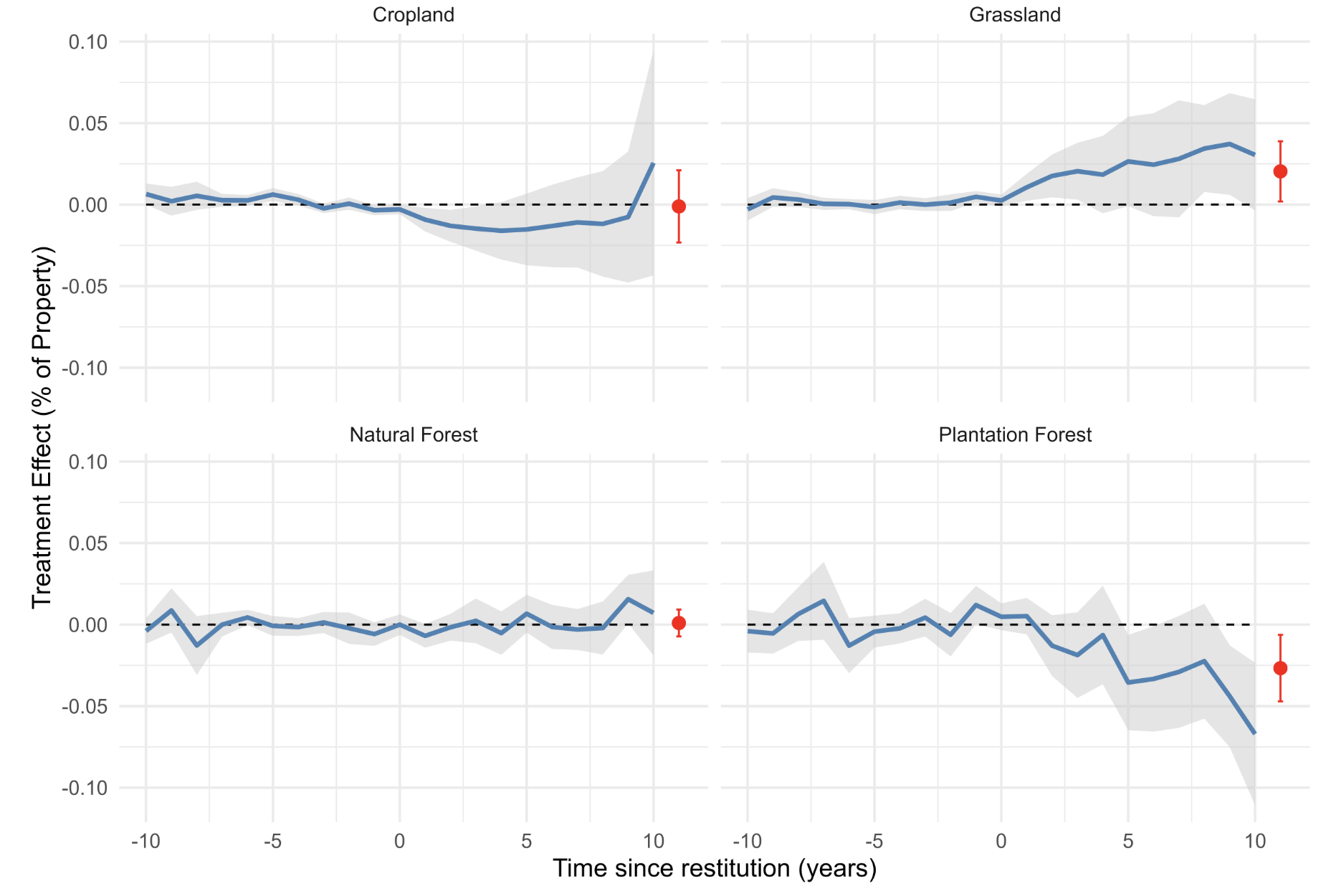Payments for ecosystem services
Despite widespread efforts to pay people to protect and restore ecosystems, little evidence exists documenting the impacts of these payments. We seek to document the economic and environmental impacts of these payments, and identify ways to make them more effective.
Selected research:
“Chilean payments for forest restoration achieved greater environmental impacts when directed toward economically disadvantaged groups.” In review – available upon request
Sustainable supply chains
Global markets for agricultural products, timber and minerals are critically important drivers of deforestation. However, there is increasing hope that the global supply chains driving land use change may also provide unique opportunities to halt deforestation. Market campaigns, deforestation moratoria and certification schemes have all been promoted as powerful tools to achieve conservation goals. We produce data to increase transparency about these policies, and then use these data to investigate the social and environmental impacts of these policies
Selected research:
Causal inference using remotely sensed data
Remote sensing enables scientists to monitor how people interact with their environment. Our lab combines these data with econometric methods of causal inference to better understand how policies influence conservation behavior. In addition, we seek to improve remote sensing and causal inference methods to unlock better conservation science.
Selected research:
Indigenous land rights
The restitution and recognition of indigenous land rights is seen as an important step to address historical dispossession. We investigate the impact of these land reforms, both in improving the welfare of indigenous communities, and transforming the way natural resources are managed.
Selected research:
“Environmental Impacts of Indigenous Land Restitution in Chile,” In review
“Who benefits from individual rights over indigenous lands? Evidence from the Mapuche,” Latest version.



